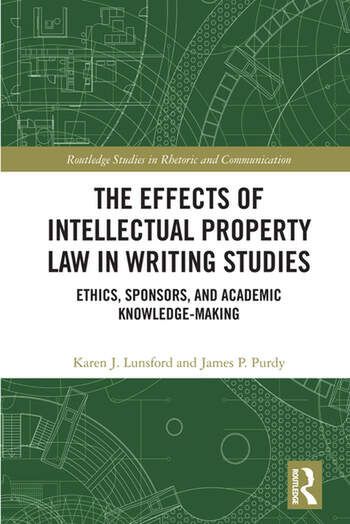We are now closed for the Christmas and New Year period, returning on Monday 5th January 2026. Orders placed during this time will be processed upon our return on 5th January.

This book documents the intellectual property experiences of writing studies scholars and challenges naturalized ways of responding to intellectual property concerns.
Analyzing results of a nationwide survey and semi-structured interviews to examine ways decisions about intellectual property (IP) during academic knowledge-making are mediated by histories of enculturation, ethical lenses, and IP sponsors, the book:
The book is an essential read for academics working in writing studies and the humanities as well as those interested in IP. This text could also be used in graduate student training in writing studies and related disciplines.